Anytime severe weather impacts Texas communities, many homeowners start thinking about things they can do to mitigate bad weather effects in the future. One of the top questions they ponder is, “Does my home need an emergency generator?”
This question doesn’t come with a simple yes or no answer. The benefits of a home generator are clear. During a power outage, you’re able to keep your lights on, your outlets working, and your appliances running. You reduce the risk of having your perishable food spoil, can stay comfortable in your home’s environment, and can carry on with life as usual.
However, it’s not as easy as looking at the benefits of a home generator alone. Because of the cost of installing a home generator, the financial gains of the investment are an important consideration. Cost aside, there are several other factors that must be considered, including installation logistics, maintenance, and its impact on your home’s value.
Use this guide on emergency home generators to help you make an informed decision. We’ll cover the following:
- What is an emergency home generator?
- How do home generators work?
- What do home generators cost?
- What are the advantages of an emergency home generator?
- Are whole home generators safe?
- Is a home generator a good investment for my home?
- How do I choose an emergency home generator?
For specific questions on emergency generators, you can contact the Cotton Electric team.
What is an Emergency Home Generator?
Generators are energy machines that serve as backup power supplies. When your power goes out, a generator can help keep certain items or your entire home running.
Generators can take two forms: portable or standby. Portable generators are manually operated and use gas to produce power. These are common solutions when you’re camping or when your power goes out and you need to plug in a refrigerator, freezer, or your cell phone.
Standby generators are much larger and more powerful than portable generators. They are usually used to power your entire house, from lights to appliances to TVs and more. Think of it as having your own personal power grid: when the houses around you are dark and silent due to an outage, your home is humming away like business as usual.
When an outage occurs, a standby generator automatically engages so there’s no gap in power. It significantly reduces the inconvenience of a blackout, often to the point where you may not realize a power outage has even occurred.
How Do Home Generators Work?
Unlike portable generators, installing a standby generator essentially becomes a part of your home. This is similar to other core systems in your home, such as your HVAC system, plumbing system, and electrical system.
When a home generator is installed, it’s connected to a long-term fuel supply, such as natural gas. The system also comes with an automatic transfer switch, which signals to the generator when it should activate and deactivate.
When your home loses electrical power, the transfer switch senses the loss of power and engages the generator. The entire electrical load is transferred during this process. When electrical power is restored, the effect reverses.
This switchover from power source to power source usually takes less than a minute. When this happens, power is not running from the generator to the power lines, making it safe for utility crews to work on.
Something to consider is that emergency home generators are not perfect solutions. If you have many high-voltage needs, such as running multiple AC units, your generator may not have sufficient power to do this. Instead, it will put certain activities “on hold” until it receives adequate power. This is one reason why it’s essential to work with a professional electrical company that specializes in home generator installation to ensure a right-size solution for your unique needs.
How much do Home Generators cost?
When you’re considering investing in a whole house generator, one of the easiest mistakes to make is to look only at the upfront purchase price. This is an important factor, but it’s not the only cost you will face.
Cost of Whole Home Generators by Type
According to Home Advisor, the average cost of a whole home generator is roughly $4,474. The type of home generator (e.g., diesel, natural gas, solar, etc.) will be one of the biggest influencers of cost. Diesel generators tend to be the most expensive and can reach as much as $15,000, while solar and liquid propane generators are usually on the lower end of the price range.
Gasoline tends to be the most cost-effective, since gas is readily available everywhere in Texas. Gasoline generators range from $550 to $3,000 in price, not including the cost of the gas. However, storing enough gasoline to get you through an unplanned emergency power outage can be tricky since gas has a short shelf life. What’s more, storing gasoline during cold weather can also pose challenges. And if you’re experiencing severe weather, going for a gas run might not be feasible.
Natural gas home generators are a little more expensive than gasoline generators, but they’re also more convenient. That’s because natural gas generators can be connected to an existing utility grid. The price may range anywhere from $1900 to $5000.
Cost of Whole Home Generators by Brand
As with AC units, power drills, or light bulbs, whole home generators are made by many companies and brands. One of the top names in standby generators is Generac, a company specializing in whole home power solutions. Other names to consider are Champion, Kohler, and Briggs & Stratton.
As with any other product, the costs of a whole home generator can vary depending on the brand you choose. Paying more for a generator doesn’t necessarily mean better quality. Talk with your trusted installation team to learn more about how to get the value for your investment.
Other Costs of a Whole Home Generator
The cost of the generator unit is a big piece of your total expense. You will also need to consider the costs of installation, as well as any electrical work that may need to be done to your home to accommodate the generator.
The max power of your generator will also influence the total cost. The size of your home and other needs will determine how powerful of a generator you’ll need. The greater the coverage, the more the unit will cost.
Last but not least, whole home generators will require annual maintenance. This usually entails changing the air filter, the oil filter, and the spark plugs. Maintenance usually depends on how much the generator is used. Many generators will alert you when it’s time to perform maintenance, which you may be able to handle yourself. Or, you can forward any maintenance alerts along to your authorized service provider to handle maintenance on your behalf. This is an essential part of keeping your generator working like new so that you’re never unexpectedly left in the dark.
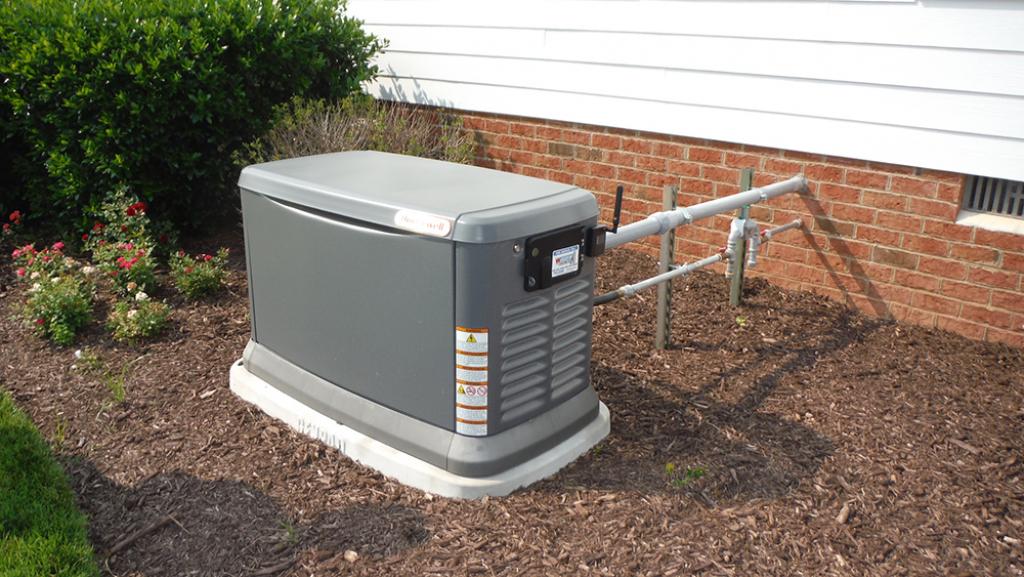
Advantages of an Emergency Home Generator
Homeowners have different motivations when it comes to installing an emergency generator. Regardless of the specific reasons, standby home generators offer multiple advantages over portable ones, including the following:
Power is Automatic
One of the biggest differences between a whole home generator and a portable generator lies in its activation. When you rely on a portable generator, your home doesn’t receive power until you flip the switch. This means having to locate your generator, ensure it has fuel, and then plug in whatever you need to power.
This isn’t the case with a whole home generator, though. An automatic transfer switch will sense when there’s a power outage and adjust accordingly. There’s no extra work required on your part. This is good news, since power outages can occur at any time. If it’s pitch dark, your power needs may need to wait until daylight with a portable generator.
Get as Much Power as You Need
When you have a portable generator, you’re at the mercy of how many outlets you have and how much capacity the generator provides. This means you might not be able to refrigerate your food and charge your cell phone simultaneously. The workaround for this is to have multiple generators running at the same time. But at $200+ a pop plus fuel, the costs of this can add up quickly and make a whole home generator more cost-effective.
These concerns are minimal when you have a standby generator. Because the generators are designed to be workhorses, you can power multiple items in your home at the same time. Even better, you don’t have to relocate these items to connect them directly to the generator like you would with a portable version.
Protect Your Home When You’re Away
Do you worry about power outages when you’re out of town? If the power goes out when you’re not home, you face many risks: your frozen foods might unknowingly thaw and then refreeze, for example. Though the power outage doesn’t directly affect you, its consequences surely could when you return.
When you have a standby generator, you can gain instant peace of mind any time you leave your house. Standby generators work even when you’re not there to see their effects. This means you can travel freely and know your home is protected at all times.
Increase Your Level of Safety
Though all generators are generally safe to use, there are a few safety concerns that come with portable generators. Carbon monoxide poisoning is a common occurrence when using portable generators indoors for an extended period of time. Depending on how well your portable generator has been maintained, you may face other risks like fire or electrocution.
Standby generators installed directly into your home mitigate these risks without sacrificing quality in operation. They do not allow carbon monoxide to build up in your home and therefore do not pose serious health hazards.
Save Money in the Long Term
If you’ve ever experienced a power outage in Texas, especially during the winter, you may already know that a lack of power can pose some risks to your home. For example, during a snowstorm a lack of power could lead to freezing pipes. This, in turn, may cause pipes to burst and flood your home, causing thousands of dollars in damages.
Another thing to consider is your home alarm system. Without electricity, your alarm system won’t work, leaving you vulnerable to theft or break-ins. This risk may increase if you’re out of town during an outage. The simple act of maintaining your alarm system can bring great peace of mind to homeowners, whether you’re at home, at work, or out of town.
Are whole house generators safe?
Standby generators are significantly safer than portable ones. This is because they are installed outside your home, where they pose no ventilation issues. This means you can run your generator safely for extended periods without worrying about carbon monoxide buildup in your home.
When you have a whole home generator professionally installed, your installer will adequately position your generator a safe distance from your house. The exhaust will be pointed away from your home, and things like wind and any roof awnings or enclosures will also be considered when choosing a location.
iS A home Generator a Good Investment for my Home?
One of the unexpected benefits of installing a standby generator is that it will likely increase your home’s value when it’s time to sell it. According to Consumer Reports, this increase can be as much as 3% to 5%. However, this is only the case when your generator is professionally installed and well maintained.
This means that on a $300,000 home in Texas, adding a standby generator system could mean an extra $9,000 to $15,000 in value, which could pay for your entire purchase and installation.
Aside from home value, having uninterrupted power can offer other positive implications. Think back to the last time your power went out. How long did it last?
If it was more than a day, you probably had some food to throw away.
If it was during a severe cold spell, you may have had frozen pipes or flooded basements. Eventually, you may need a professional mold removal service to take care of the issues the water damage left behind.
Maybe you had to seek alternative shelter for a night because it was too hot or too cold to stay in your own home.
These costs can add up quickly. In fact, sources estimate that power outages cost American homeowners as much as $150 billion per year in damages.
Also, if you work from home, having ongoing power is a must. Otherwise, you may be unable to complete your work, leading to dissatisfied clients or bosses.
While you may not see an immediate ROI on your home generator installation, it’s safe to say that there is a monetary ROI to be had. You will achieve that ROI faster if you live in an area that’s susceptible to power outages, severe storms, or otherwise has a poor power infrastructure that could be unreliable in the future.
How to Choose an Emegency Home Generator
Buying an emergency generator isn’t as easy as going to your local home improvement store and grabbing one off the shelf. Because generators need to be professionally installed, it’s essential to work with a company that specializes in right-sizing generators for your specific use case.
Your installer will come to your home to understand the layout of your land, the appliances you’ll be running, and available utilities like natural gas. These are important factors in choosing the right size generator, especially since bigger isn’t always better.
Your installer may also need to inspect your existing electrical system. This system’s complexity will also play a key role in choosing a generator, as you won’t want to improperly load your system.
They will scout the appropriate place in your yard at a safe distance from your home. From there, it’s a matter of making the purchase and having it installed.
Moving Forward with an Emergency generator
For homeowners in Texas, choosing whether to install an emergency generator for your home is mainly based on preference, not need. However, the advantages and convenience of a whole house generator are attractive enough to at least be worth exploring.
Imagine not having to throw out a single piece of food in a power outage ever again. You’ll never have to seek out alternative shelter due to your home being too hot or too cold. Your livelihood remains intact, and you can continue your daily lives with as much power as you need.
Working with a professional service provider like Cotton Electric is invaluable to the experience. Your generator will only be as good as its installation, since improper selection and installation runs the risk of not being able to power your home the way you need.
Contact our team today to learn more about whole home generator installation.

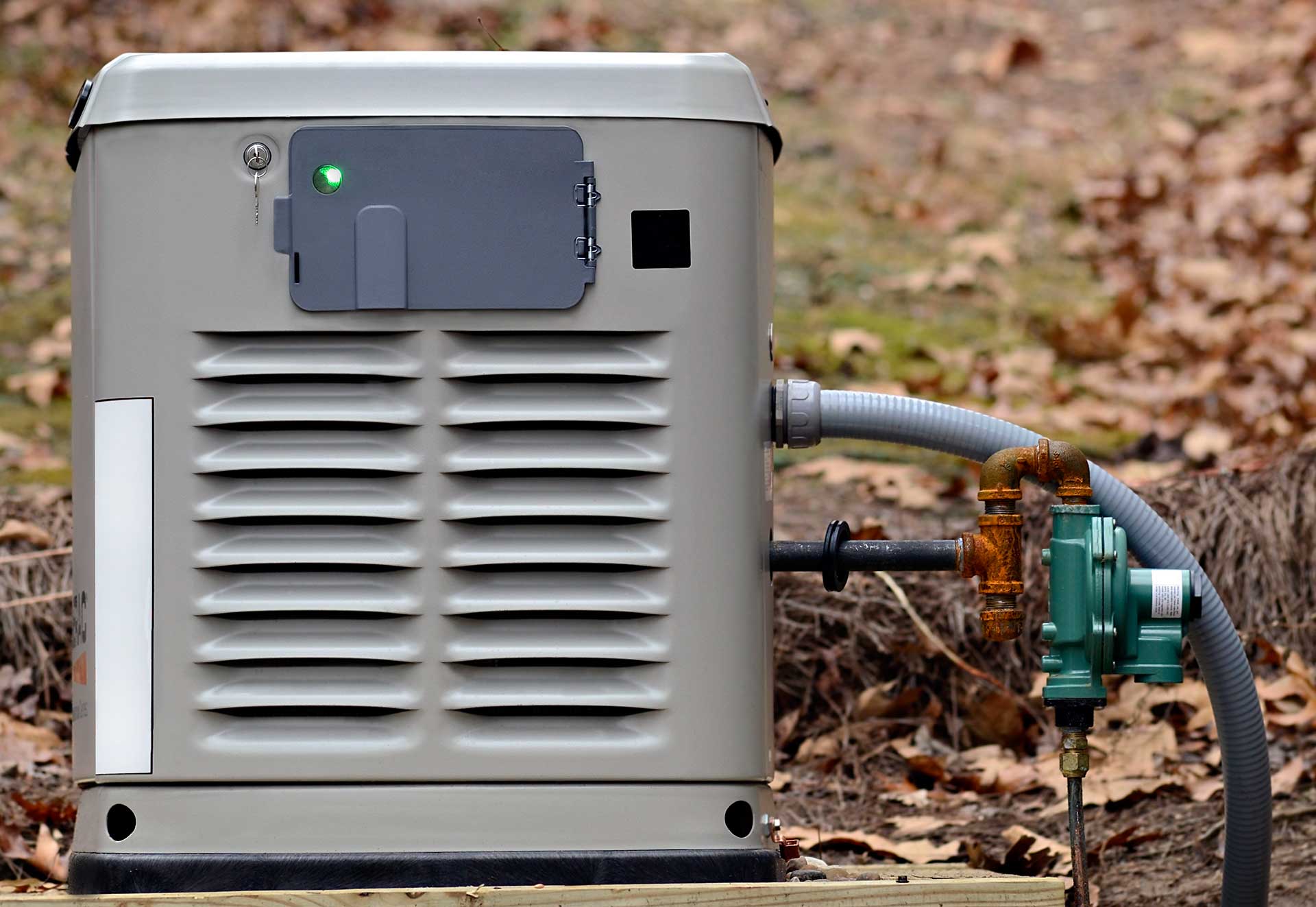

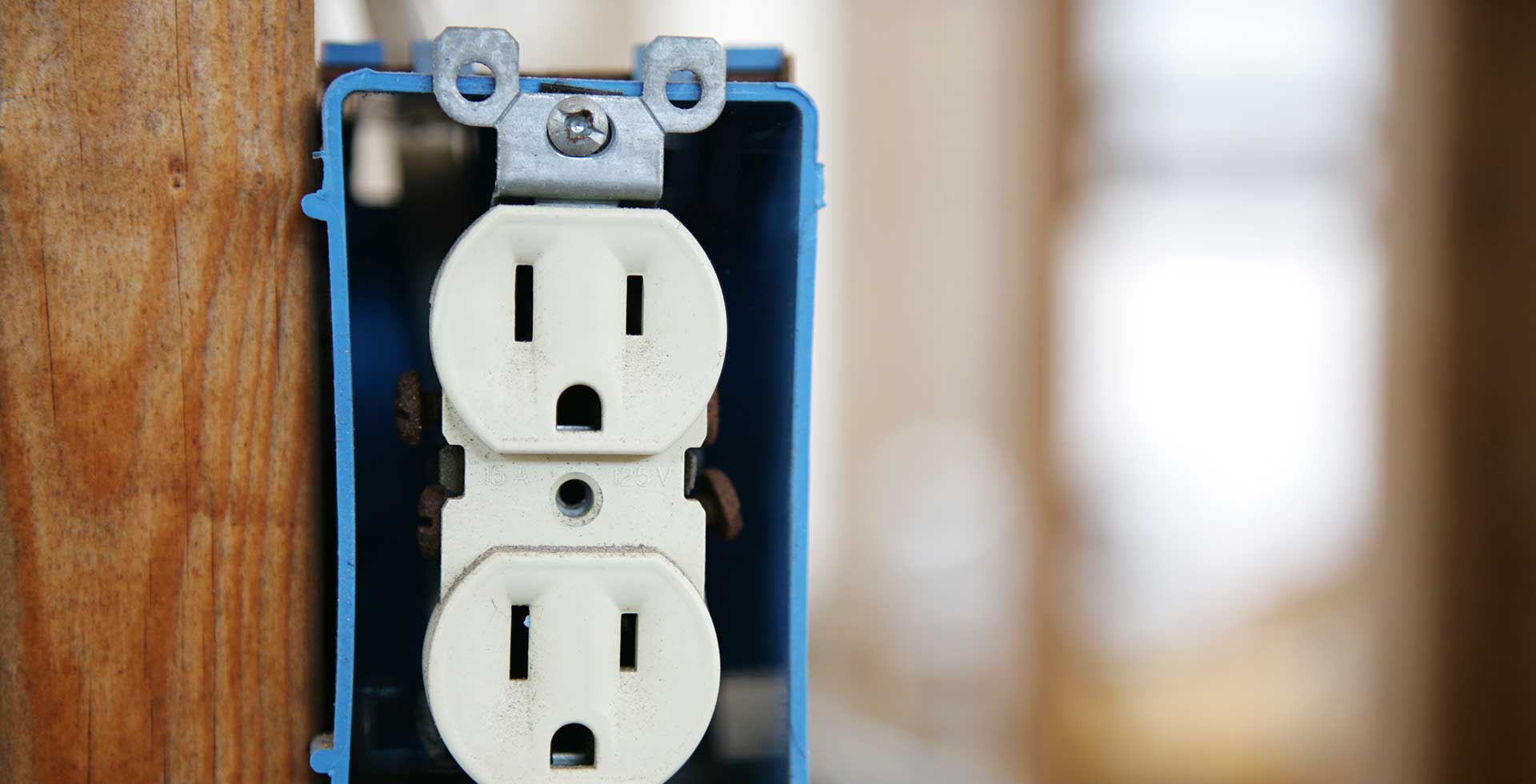
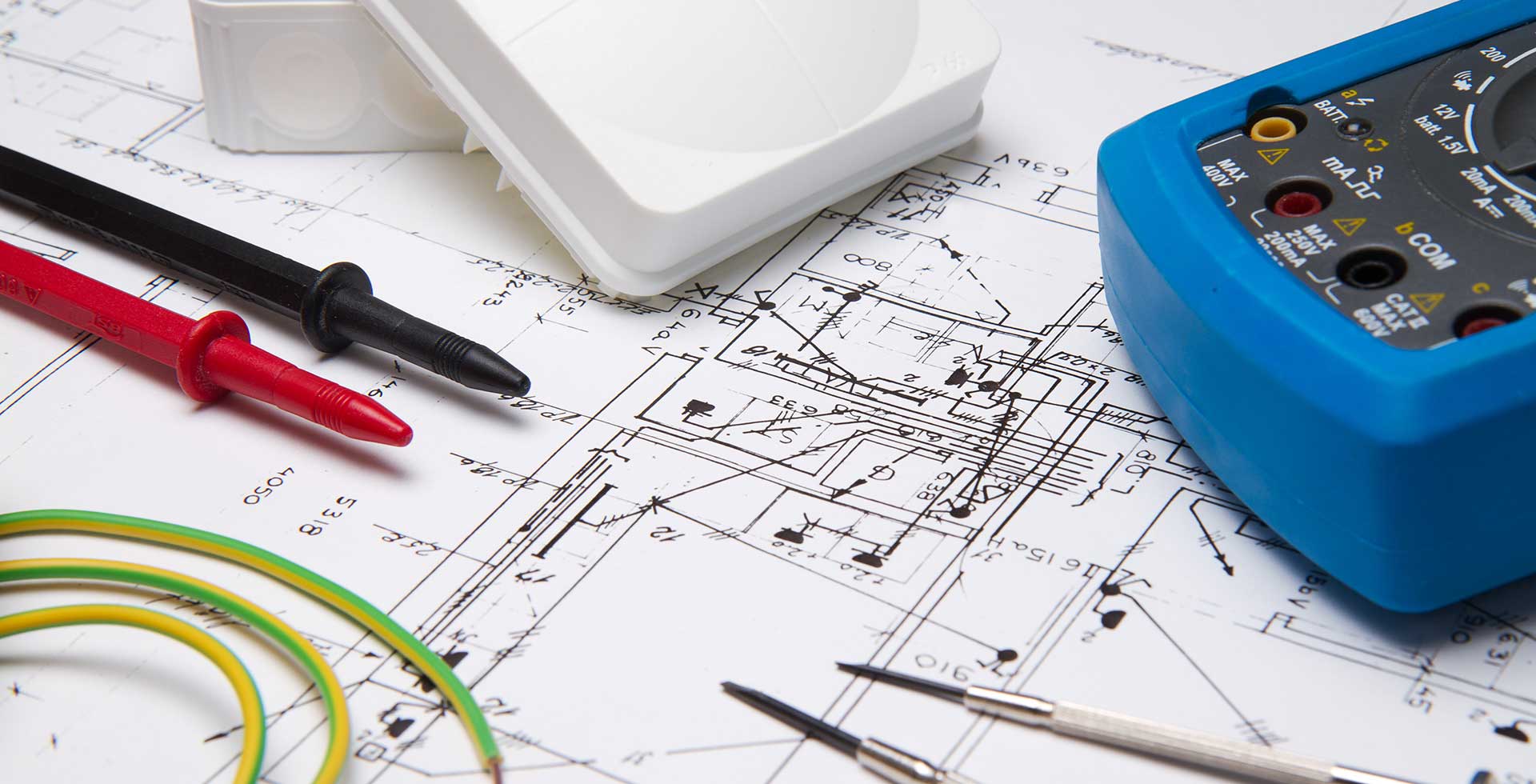



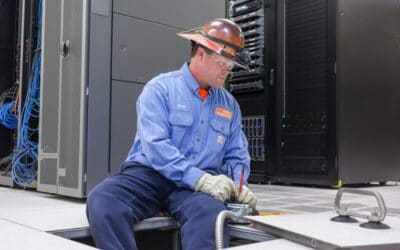
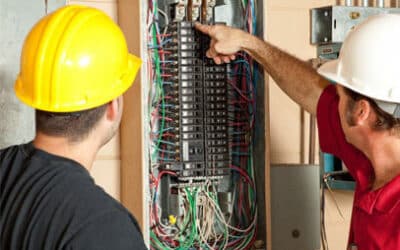
Recent Comments